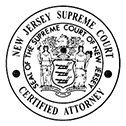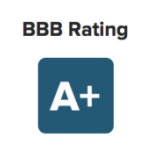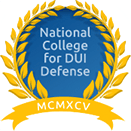Linden NJ Drug Overdose Defense Lawyer
The police in the City of Linden and other municipalities in Union County are aggressive in prosecuting those who sell drugs that lead to overdose death. This tends to make sense given the sharp rise in overdoses from heroin, prescription pain medicine, synthetic drugs and other forms of controlled dangerous substance (“CDS”). The Union County Prosecutor’s Office has no hesitation in pursuing a first degree crime for causing a drug induced death and for seeking maximum penalties, including up to twenty years in prison, upon conviction. This is one of several reasons why you need to retain a skilled defense lawyer if you or your loved one has been charged with this offense. The attorneys at the Law Offices of Jonathan F. Marshall have been defending complex criminal charges at the Union County Superior Court in the City of Elizabeth for decades and have the qualifications necessary to protect against the charge that was filed against you in Linden, Elizabeth, Plainfield, Hillside, Union, Rahway or another local town. Our firm also happens to be one of the largest in the state with an attorney on our staff available 24/7 to assist you. Contact our Union Township Office now at 908-272-1700 for a free consultation.
The New Jersey Drug Strict Liability Law For Drug Induced Deaths
As you will note from the title, the NJ Drug Induced Death Law which is a “strict liability” law. The law is set forth at N.J.S.A. 2C:35-9 and provides that:
Any person who manufactures, distributes or dispenses methamphetamine, lysergic acid diethylamide, phencyclidine or any other controlled dangerous substance classified in Schedules I or II, or any controlled substance analog thereof, in violation of subsection N.J.S.A. 2C:35-5, is strictly liable for a death which results from the injection, inhalation or ingestion of that substance, and is guilty of a crime of the first degree.
There are a few things that bear explanation under 2C:35-9. First, it is important to keep in mind this law is not limited to deaths caused by meth, LSD (i.e. lysergic acid diethylamide), or PCP (i.e. phencyclidine), and includes any Schedule I or II drugs. The drug most often involved in this charge is not, in fact, one of the three (3) set forth by name in the statute but rather heroin. The second thing you want to know about this violation is that it does not merge with other offenses in the event that you are convicted of another offense on top of 2C:35-9. What this means is that your convictions will fun consecutive in terms of period of incarceration. For example, if you are found guilty of homicide, maintaining a CDS production facility or being a leader of a narcotics trafficking network, the jail sentence for that charge will not start to run until after you have served your time on this offense. The third and most important thing you want to know about causing a drug induced death is that normal rules of causation do not apply because 2C:35-9 is a strict liability violation. The state does not have to prove that it was defendant’s purpose to cause the death or that the defendant knew that death would result. The State need not even prove that defendant was reckless or negligent in causing the death; all that needs to be established is that but-for the victim’s injection, inhalation or ingestion of the substance they received from the defendant, they would not be dead. The only exception to this rule is a death that is so remote that its occurrence has no just bearing on the defendant’s liability, for example, where the death is rightly the result of another person’s actions.
What The Prosecutor Needs To Prove To Obtain A Conviction For A Drug Induced Death
First, the State must prove that the substance involved in a person’s death was methamphetamine, lysergic acid diethylamide, phencyclidine, or any other controlled dangerous substance classified in Schedule I or II or any of their analogs. Second, the prosecutor must prove that the CDS was manufactured, distributed, or dispensed by the accused. Third, the State must prove that accused knowing manufactured, distributed or dispensed the drug. Fourth, the State must prove that the victim’s death would not have occurred but-for the injection, inhalation or ingestion of the substance received from the defendant. Lastly, it must be shown that the defendant’s actions in manufacturing or distributing the substance that cause the death of the victim were not so remote as to have no just bearing upon the victim’s death.
Penalties & Sentencing That Apply In Drug Induced Death Cases
As stated above, this is a crime of the first degree. This means that it carries with it the potential for jail time of between 10 and 20 years, as well as fines of up to $200,000. In addition to these substantial penalties, it is of note that the defendant will not be eligible for drug dependent person treatment. It is also of note that a person convicted of this offense must pay a mandatory penalty of three thousand dollars, laboratory fees of $50, and a person convicted will forfeit their driving privileges for a period of not less than six months or more than two years.
Elizabeth NJ Drug Induced Death Offense Attorney
All indictable felony charges filed in Union County are heard in Elizabeth at the county courthouse. This is the sole place were a drug induced death offense can be adjudicated. Our lawyers have extensive experience handling cases in this venue whether they originated in Union, Hillside, Roselle, Clark, Cranford or another municipality. To speak to an attorney on our staff immediately, call our office at 908-272-1700. Attorneys on our team are available 24/7 to assist you with bail or any other issue you may have concerning a drug overdose charge.












